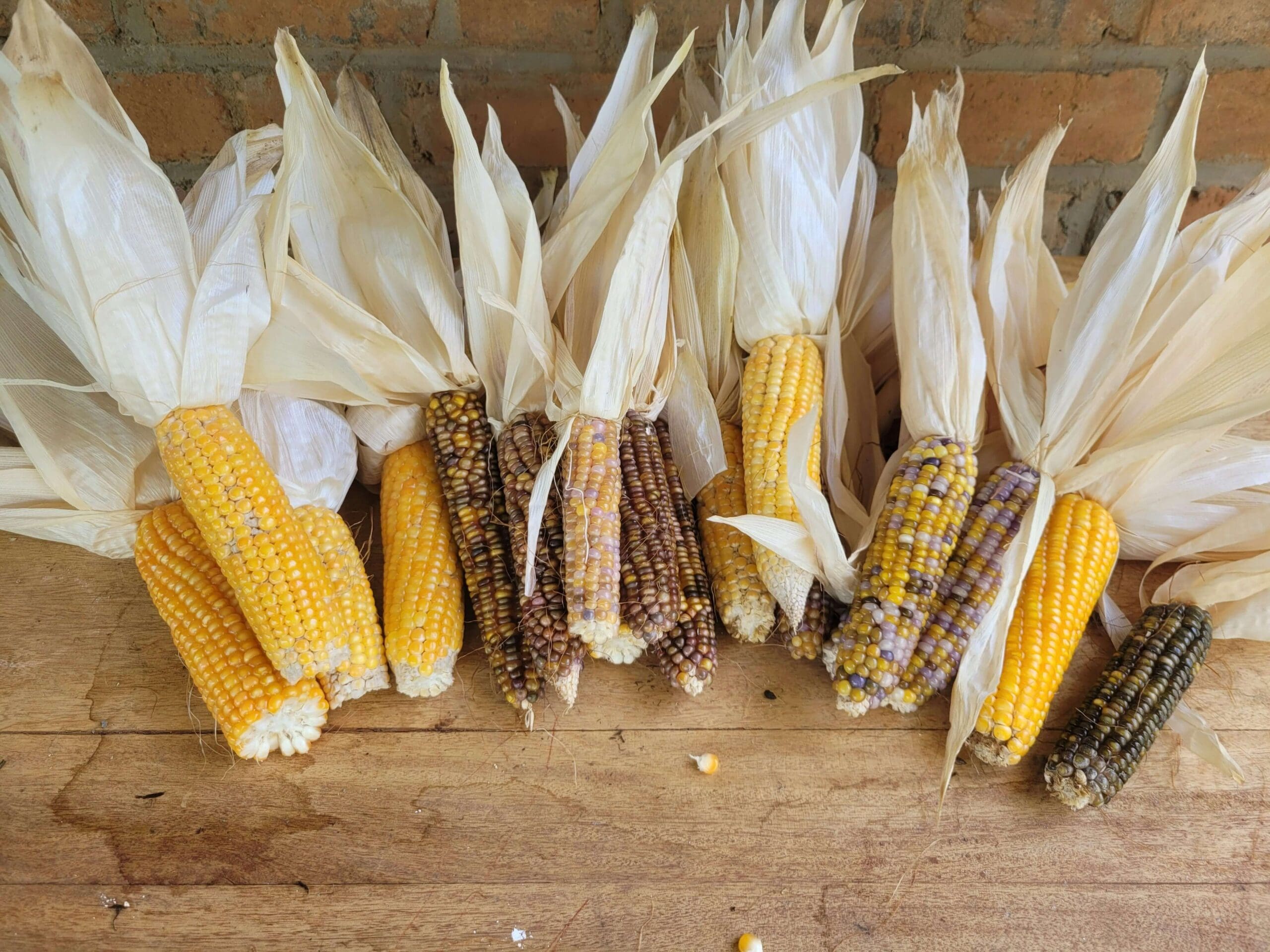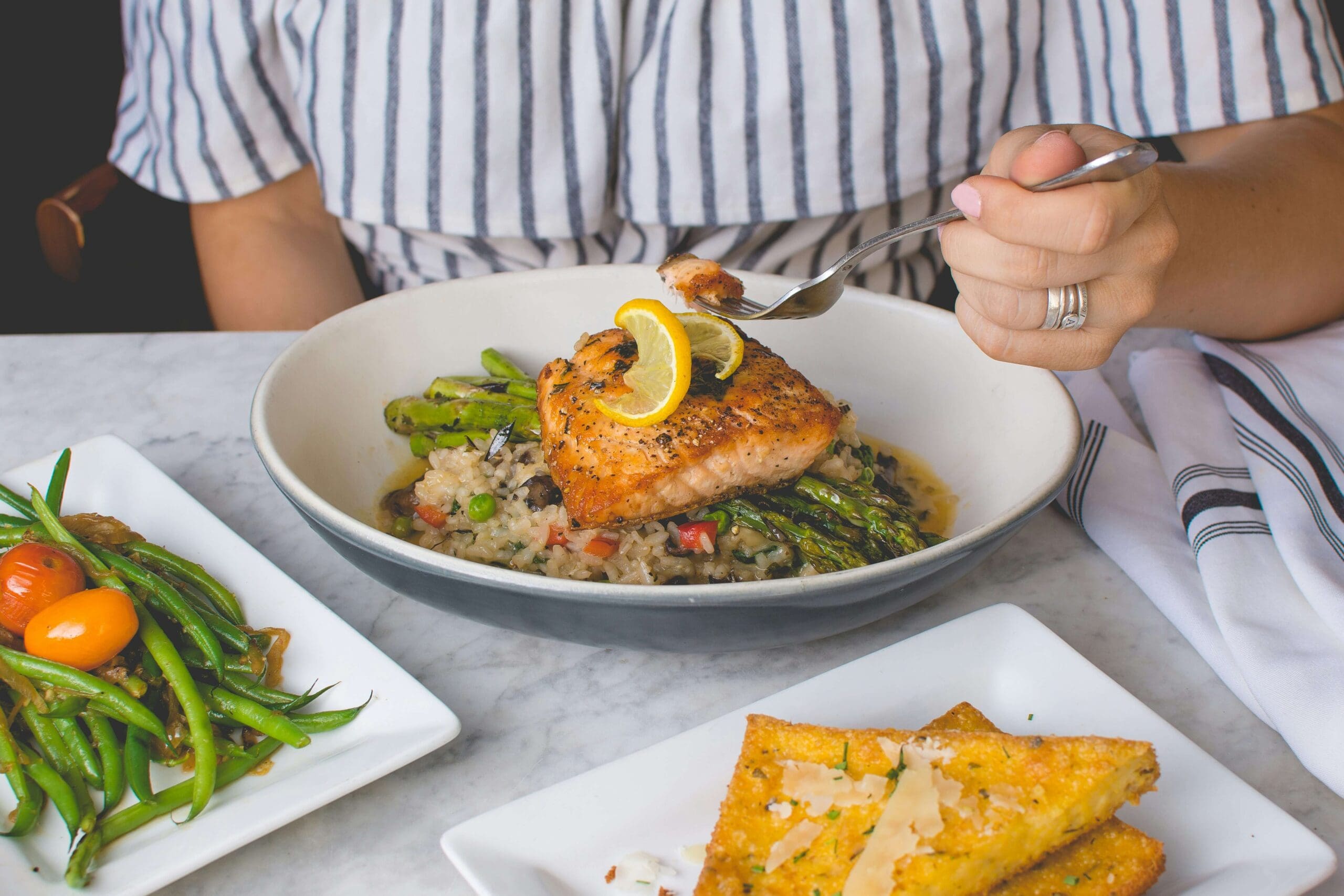If you’re a cancer survivor wondering whether GMOs are safe, you’re not alone. Between conflicting headlines and well-meaning advice from friends, it’s easy to feel confused about what’s actually true. The fear around genetically modified foods is real, but here’s what matters: the science is clear, and you deserve to know the facts.
As your oncology dietitian who’s worked with thousands of cancer survivors over 15 years, I’ve seen clients eliminate entire food groups out of GMO fear, only to feel more anxious and restricted.
My job inside my programs is helping you cut through the noise and give you evidence-based answers so you can eat with confidence. Let’s explore what GMOs actually are, what decades of research show about cancer risk, and how you can make informed food choices without unnecessary anxiety.
Get Your Free Clean Scan Plan!
Before we dive into the science, grab your Clean Scan Plan. It’s my proven roadmap to prepare your body for scans, understand your results, and reduce scan-time anxiety.
What Are GMOs?
GMOs (genetically modified organisms) are plants or animals with genes altered in a laboratory. Scientists insert genes from one species into another to create traits like pest resistance, drought tolerance, or improved nutrition. This process is called genetic engineering.
The most common GMO crops are corn, soybeans, cotton, canola, and potatoes. These are modified to resist insects, tolerate herbicides, or withstand environmental stress. For example, some corn produces a natural protein that protects against pests, reducing the need for chemical pesticides.
Do GMOs Cause Cancer?
No. GMOs do not cause cancer. This is one of the most important facts I share with survivors worried about food choices. Despite social media claims, there is zero credible scientific evidence linking GMO foods to cancer development or recurrence.
Are GMOs Safe for Cancer Survivors?
Yes. More than 40 global government agencies, including the World Health Organization, FDA, and Food and Agriculture Organization, have declared GMO foods as safe as conventional foods. These organizations review extensive research before reaching conclusions.
A client in my NED Method Membership spent months avoiding all soy because she feared GMO soy would cause breast cancer recurrence. She was missing out on protective compounds in soy that actually reduce recurrence risk.
Once we reviewed the evidence, she added tofu and edamame back. Her food anxiety decreased dramatically, and she felt normal around meals again.
Do GMOs Transfer to Meat, Dairy, and Eggs?
No. GMO content does not transfer into animal products. When animals eat GMO feed, the genetic material breaks down during digestion just like conventional crops. There are no traces of GMO DNA in meat, milk, or eggs from animals fed GMO crops.
Dr. Alison Van Eenennaam’s research confirms this extensively. The majority of US livestock eat GMO feed, but GMO DNA doesn’t transfer to animal products we consume.
This matters because many of my clients unnecessarily restrict animal products, thinking they need meat only from animals fed non-GMO feed. While you might choose grass-fed for other reasons (animal welfare, environmental concerns), avoiding GMO transfer isn’t one because that transfer doesn’t happen.
How to Identify GMO Foods
While science shows GMOs are safe, some clients prefer avoiding them for personal reasons. Here’s how:
Reading Labels
The National Bioengineered Food Disclosure Standard requires certain foods to indicate bioengineered ingredients. Look for “bioengineered” labels or symbols on packaging.
“Non-GMO Project Verified” labels are voluntary third-party certifications verifying products that don’t contain GMO ingredients.
“Organic” foods are grown from non-GMO seeds and cannot intentionally include GMO ingredients.
Most Common GMO Foods
Focus on these crops most likely to be genetically modified:
- Corn products: corn syrup, cornstarch, corn oil, corn flour
- Soy products: soy lecithin, soybean oil, textured vegetable protein
- Canola oil
- Cottonseed oil
- Sugar from sugar beets (not cane sugar)
- Some summer squash, zucchini, and papaya
Shopping Strategies
- Choose organic versions of common GMO crops (corn, soy, canola)
- Look for “Non-GMO Project Verified” labels
- Buy grass-fed meat if concerned about feed (though GMO DNA doesn’t transfer)
- Shop farmers markets and ask about growing practices
- Focus on whole, unprocessed foods
Take Control of Your Nutrition Journey
This is exactly why I created The Clean Scan Plan to help you focus on what actually matters for your health without getting lost in food fears. Get evidence-based guidance that supports your body and gives you peace of mind.
What Your Oncology Dietitian Recommends
After working with over 1,000 cancer survivors in my programs, here’s what you need to know: your overall dietary pattern matters infinitely more than whether individual foods contain GMOs.
Research proves that diets rich in fruits, vegetables, whole grains, and legumes reduce cancer risk and support recovery. This benefit far outweighs any theoretical GMO concerns.
When clients spend energy worrying about GMOs while eating diets low in produce and high in processed foods, we need to refocus.
In my NED Membership Method, I teach survivors to:
- Prioritize variety: Eat a rainbow of colorful produce
- Focus on whole foods: Choose minimally processed options
- Base decisions on evidence: Not fear or social media
- Reduce proven risks: Excess alcohol, processed meats, excess body fat
- Find flexibility: Rigid food rules increase anxiety and decrease quality of life
One client spent two years avoiding all soy, thinking GMO soy would cause breast cancer recurrence. She missed protective soy compounds that actually reduce recurrence risk. After reviewing evidence together and understanding the science, she added tofu, edamame, and soy milk back. Her food anxiety decreased dramatically, and she finally felt normal around eating again.
Ready to Feel Confident About Your Food Choices?
Join thousands of cancer survivors who’ve transformed their relationship with food through my Clean Scan Plan. This free guide gives you everything to prepare for scans, support your body, and reduce survivorship anxiety.
Yes! Send Me the Free Clean Scan Plan
FAQs
Can GMOs Change My DNA or Genes?
No. Eating GMO foods cannot change your DNA. When you eat any food GMO or not your digestive system breaks down DNA into basic components that don’t enter cells or alter genetic code. Your body treats DNA from food identically regardless of source. This is basic biology that applies to all foods you consume.
Do I Need to Avoid GMO Corn and Soy Specifically?
No. These are the most common GMO crops, but decades of research prove they’re safe. In my programs, I actually encourage cancer survivors to include soy foods because they contain protective compounds that may reduce recurrence risk, especially for breast cancer survivors. The GMO status doesn’t change soy’s nutritional benefits.
Are GMO Foods Less Nutritious Than Organic or Conventional Foods?
No. GMO foods have identical nutritional composition to non-GMO counterparts. The National Academies confirmed GMO crops have equivalent nutrition. Some GMOs are engineered for enhanced nutrition, like Golden Rice with added vitamin A. Genetic modification doesn’t reduce vitamins, minerals, or beneficial compounds.
Should I Worry About GMO Ingredients in Processed Foods?
The GMO status isn’t the main concern—the overall quality of processed foods matters. Many processed foods contain GMO-derived ingredients like corn syrup or soybean oil, but these aren’t harmful because they’re from GMO crops. As your cancer dietitian, I’m more concerned about processed foods high in added sugars, sodium, and unhealthy fats. Focus on choosing minimally processed whole foods most of the time, regardless of GMO status.
Can GMO Foods Cause Inflammation in My Body?
No evidence supports this. Inflammation is influenced by overall dietary pattern—not whether specific foods are genetically modified. What increases inflammation? Diets high in processed foods, added sugars, refined carbohydrates, and excess calories. What reduces it? Diets rich in fruits, vegetables, whole grains, fatty fish, nuts, and olive oil. GMO status doesn’t affect anti-inflammatory properties.
Should I Avoid GMO Foods if I Have a Family History of Cancer?
No. GMO foods don’t increase cancer risk whether you have family history or not. Focus on proven cancer prevention strategies: maintaining healthy weight, eating plenty of plant foods, limiting alcohol, not smoking, staying active, and getting recommended screenings. These factors have strong evidence for reducing cancer risk. GMO avoidance is not a science-backed cancer prevention strategy.
The Bottom Line for Cancer Survivors
After 15 years working with cancer survivors, here’s what I know with certainty: GMO foods do not cause cancer, increase recurrence risk, or harm your health. The scientific evidence is clear and consistent across major cancer research institutions, international health organizations, and thousands of peer-reviewed studies.
What actually matters for your health after cancer?
- Eating a diet rich in colorful fruits, vegetables, whole grains, lean proteins, and healthy fats
- Moving your body regularly
- Managing stress and getting enough sleep
- Maintaining a healthy weight
- Limiting alcohol and not smoking
These are the evidence-based strategies that reduce cancer risk and support recovery.
Learn more about my evidence-based approach to cancer nutrition through my NED Method Membership, where I help survivors focus on what truly matters for health and recovery.
References
- https://www.mdanderson.org/cancerwise/do-gmos-cause-cancer.html
- https://blog.dana-farber.org/insight/2019/08/is-there-evidence-that-gmos-can-cause-cancer/
- https://pmc.ncbi.nlm.nih.gov/articles/PMC3615871/
- https://www.nationalacademies.org/based-on-science/foods-made-with-gmos-do-not-pose-special-health-risks
- https://www.fda.gov/media/135280/download
- https://www.cancerresearchuk.org/about-cancer/causes-of-cancer/cancer-myths-questions/do-genetically-modified-foods-cause-cancer
- https://www.aicr.org/cancer-prevention/healthy-lifestyle/other-lifestyle-risks/






